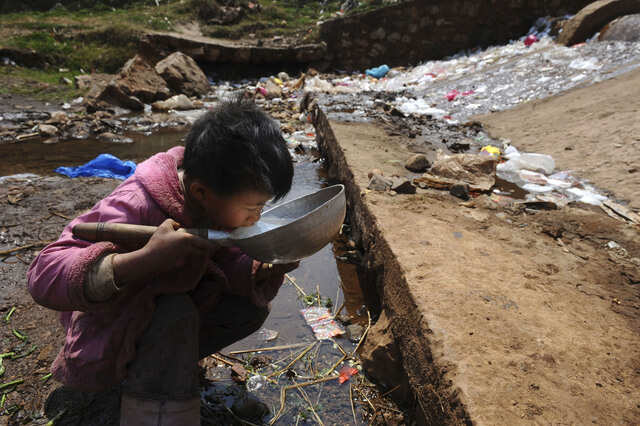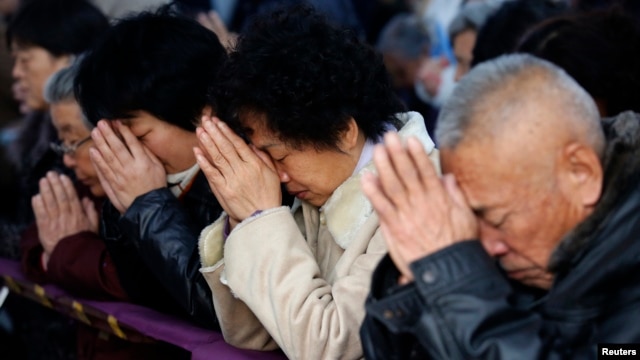How China’s Politics Are Screwing with Canadian Real Estate Markets
Extraordinary levels of capital flight tied to chaos in the Middle Kingdom.
There is a direct line linking the explosive real estate bubbles in Toronto and Vancouver and how secure Chinese President Xi Jinping looks on his throne.
They clearly do not feel the regime is secure and want their assets hidden away in stable overseas havens like Canada, the United States, Australia or Europe.
Canada has been a favourite destination for the Red Aristocracy’s family fortunes for about a decade, but especially since Xi came to power nearly four years ago. That is in large part because of the lack of publicly available records of beneficial owners of property or businesses in Canada. The anonymous nature of investment in Canada makes it difficult for Chinese Communist Party disciplinary bodies to know who is breaking the currency laws by exporting more than the equivalent of $50,000 a year.
Australia has been much more proactive than Canada in trying to curb the inflationary effects of these Chinese fortunes on its local housing and property markets. Politicians in British Columbia have shied away from acting for fear of being accused of racism.
What B.C. has failed to understand is that this dangerous flood of money has nothing to do with race and more about colonization. It’s the story of a particular class of people at the heart of a particular regime at a particular stage in its history. Much the same story could be written about the Russian oligarchs’ investments in property in London, England.
It was only last week that the government of British Columbia moved to try to put the brakes on rocketing price rises. On Tuesday it imposed an extra 15 per cent tax on residential properties bought by foreigners. This move came after home prices rose by 36 per cent in the 12 months to the end of June, the average price of a house in greater Vancouver hit $1.56 million and Chinese nationals bought more than $1 billion worth of B.C. property between June 10 and July 14.
The amount of money fleeing China is extraordinary; it’s also a clear statement of the anxiety the country’s newly wealthy citizens feel about the safety of their assets at home. For over a decade the money flight has been running about double the usual inward foreign investment of about $US120 billion a year. But there has been an explosion in the amount of money bleeding abroad since Xi became the Communist Party’s general secretary at the end of 2012, and China’s president early in 2013.
Washington-based Global Financial Integrity, an organization dedicated to eradicating international money laundering, reckons that $US250 billion slipped out of China in 2012. The French bank BNP Paribas estimates the number was about the same in 2014.
Last year, however, the flood turned into a torrent. The Institute of International Finance, the association representing the global financial industry, calculates that just under $US1 trillion left China last year. The Bloomberg financial news agency came up with similar numbers, reckoning that $US367 billion left China in the fourth quarter of last year alone.
Some of this money flight undoubtedly is being driven by the poor shape of the Chinese economy and its doubtful prospects. But a far more pressing motive is China’s ongoing social and political upheaval.
The Chinese Academy of Social Sciences, the Beijing government’s main policy think tank, used to publish annual reports on “mass incidents,” defined as riots involving more than 1,000 people. The academy stopped issuing these reports a few years ago when the annual number reached 180,000 — nearly 500 major protests every day — that have to be put down by riot squads or the People’s Armed Police. My sources in China with access to the academy studies say that number has not changed significantly in recent years.
Until a few years ago, almost all the riots were triggered by Communist Party officials (or their relatives and cronies) stealing land from peasant farmers or subjecting blue collar workers to extortion. In recent years, however, pollution and the extraordinary degradation of the Chinese environment have become the main reason for the riots.
Government studies have found that 70 per cent of China’s aquifers are irredeemably polluted and that nearly 700 million people — over half the population — drink water contaminated by human and animal waste.


Air pollution kills about 1.2 million Chinese a year. A new government study has found that 20 per cent of China’s farmland, woodland and pasture is dangerously contaminated with the residue of unregulated smelting, mining and fertilizer manufacture. *All the food produced in China is poisonous to one degree or another.
President Xi’s response to the seething popular discontent has been to bring back levels of repression not seen since regime founder Mao Zedong died in 1976. Indeed, Xi has armed himself with instruments of power and personal rule not seen since the days of Mao.
As he took office four years ago, Xi launched what was billed as an anti-corruption campaign — actually a purge of his political opponents.
Xi took control of China as though he was launching a coup d’etat. He first attacked the internal security apparatus managed by Zhou Yongkang, a member of the power-pinnacle Politburo Standing Committee, who had supported Xi’s rival Bo Xilai for the leadership. Xi then swept away the leadership of the People’s Liberation Army and put his own generals in place.
Hundreds of thousands of officials have been prosecuted in Xi’s purge, including about 150 of China’s 3,500 ministerial-level officials.
Outside government, Xi has followed the lessons of the 1989 Tiananmen Square demonstrations and the 1999 protest outside the Zhongnanhai leaders’ compound by about 15,000 followers of the Falun Gong spiritual and health movement. Any movement that risks becoming a national carriage for protest against the Communist Party is slaughtered at birth.
Xi has been merciless in destroying the growth of a community of lawyers dedicated to judicial reform and the establishment of the rule of law. Other pro-reform organizations like the New Citizens’ Movement and Charter 08 have been stomped on. Xi also is waging an ongoing war against China’s secret Christian churches.

Against this background, it’s not hard to understand why wealthy Chinese don’t think that their ties to the ruling Communist Party offer them any security. In Xi’s court it’s easy to fall out of political favour with deadly consequences — and who knows how long the palace gates will hold against the angry citizenry?
For the moment, it’s difficult to imagine a scenario that sees Xi and the Communists toppled by the same kind of uprisings that spread across the Middle East in the Arab Spring. Xi has a massive and well-organized domestic security force — and he can still count on the People’s Liberation Army.
But as the Arab Spring showed, authoritarian regimes may appear strong — but they are also brittle. Tap on the glass at the wrong place at the wrong time and they shatter on the street. ![[Tyee]](data:image/webp;base64,UklGRtYAAABXRUJQVlA4TMkAAAAvC8ADAGeBoG3buH/Ln8oZnoaBtG1a/t6/hitl0LaRpGT/u+sCOv7AZv7j/X8FxLKCgKD1gr4IgNaHahHU+wSw6z6gWNpFBEBQewVQ7QOdWe4sUd1ggVYQoWmv3bULOIgkSZHmmJmf//hu27++RQ8R/c8uJh7VG9Sz8T9ZQhWDuP7grCUeQj7qrWL3RFV+gt/pCxUJJ4Jg2Xw4xO0bkqXzRnyExrzbpxH6nHF/gFG12RvGzeMD2uz2awCdlX7xhUFWDeOkBeb+gwIA)


No comments:
Post a Comment
Comments always welcome!